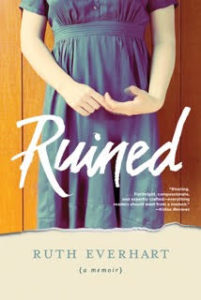
It was when I lived in the heart of Appalachia for three years between college and seminary, that I started to cringe whenever I heard sweet, well-meaning folks say, “There but for the grace of God go I.” I knew what they meant, these generous volunteers from around the US who spent vacation weeks to help repair and build homes for low-income people. For some of them, it was a huge step to get to the place of uttering this phrase. It meant they could see how similar they were to the people they had come to help. When people said this, they meant it was hitting them fresh in the face that a paycheck or an illness or birth into a different family would have put them in the same position of poverty and need.
My cringe response developed because of what was not said. If – except for the bounty of God’s grace – you might be in the same situation as that person over there, does that mean God’s grace ran out for that person? If the only thing separating you from that person over there is the grace of God, does that mean God does not bestow grace upon him?
Ruth Everhart calls it the “back side” of our theology, these second-thought obvious questions and holes exposed by our first-thought confident statements of faith. It’s a helpful term, focusing on what’s behind/beside/beneath what we say. Everhart’s new memoir, Ruined, explores the experience she and her college housemates had of being sexually assaulted in their home, and how her life, love, and faith unfolded in the years that followed. As she and her housemates attempted to make sense of what had happened to them, the language and theology they used to do so betrayed the differences in their experience and theology.
One housemate, Cheryl, had not been raped. Everhart overhears Cheryl saying to another friend, “I just kept reciting the Twenty-third Psalm over and over, and I guess God heard me.” Everhart continues, “Didn’t she know that we’d all been saying that psalm while our heads were smashed into the nap of the carpet? I kept my distance from Cheryl after that. She’d had her own experience of the crime and her own reaction. Her belief that God had intentionally spared her obviously gave her comfort. Who knows? Perhaps in her shoes, I would have felt the same. But Cheryl seemed unaware of the back side of her belief about being spared. What did that mean for the rest of us, who had not been spared?” (Ruined, p. 79).
Everhart, who was raised in the Dutch Calvinist tradition and eventually became an ordained Presbyterian minister, frames her story with stark markers of “back side belief.” She begins the book with this sentence: “It happened on a Sunday night, even though I’d been a good girl and gone to church that morning” (p. 3). In the epilogue, she reflects on the moment, decades later, when one of her young daughters first learns about the assault on her mother. Her daughter finds an old news clipping Everhart saved: “’Rapist-robber? Oh, Mom’ – your face twisted up – ‘you mean you weren’t a virgin when you married Dad! Poor you!’ It was a shock to realize that your understanding of sexual violence was being filtered through the language of sexual purity” (p. 317). It was shocking to me, as a reader and a Christian, to consider her daughter’s reaction. How odd to have compassion (“Poor you!”) so misplaced (“you weren’t a virgin”). How strange and twisted a “Christian” belief whose back side is worry over purity/virginity rather than over a violent attack.
What we profess is important. But if we have not examined the back side of those beliefs, we don’t know what we are saying – or what we really believe.
There is so much to recommend Everhart’s book, beginning with her writing, that manages to be both incisive and humorous in exactly the right places. Everhart is not an untouchable hero in this story, making all the “right” choices about her life, but she is deeply relatable, even if your own experience of sex, violence, and faith have been different than hers. I admired the intentional way she attempts to overcome her fear of black men after the attack. Everhart is white, from an overwhelmingly white community and church, and had very few interactions with black people before the black attackers broke into her home. As she describes her post-attack encounters with black men, she is honest about her unflattering knee-jerk reactions while also being kind with her still-terrified younger self. Her later church shopping struck me as genuine and wise, when she trusts God’s “Spirit to do something important in this hour every week, even if I didn’t know exactly what that was” (p. 275).
This is an honest and important book – especially for the church, where we so often have trouble discussing sex and sexual violence and where the unexamined back side of our belief heaps harm upon violation, for those in the pews and for our neighbors.
If you have read a blurb about Ruth Everhart’s memoir and were pretty sure it wasn’t going to make your reading list, I hope you’ll do yourself a favor and read it anyway. Despite the title, this is not a story of ruin, but of profound and inviting redemption. If you’re brave enough to accompany Ruth as she so beautifully describes her life and faith, you realize the only thing ruined was the theology that claimed that word.
*
Full Disclosure: I received a free advance reader copy of this book from the author, in exchange for an honest review. The opinions I have expressed are my own.
Photo credit: Ruined book cover. Used with the permission of Ruth Everhart.
